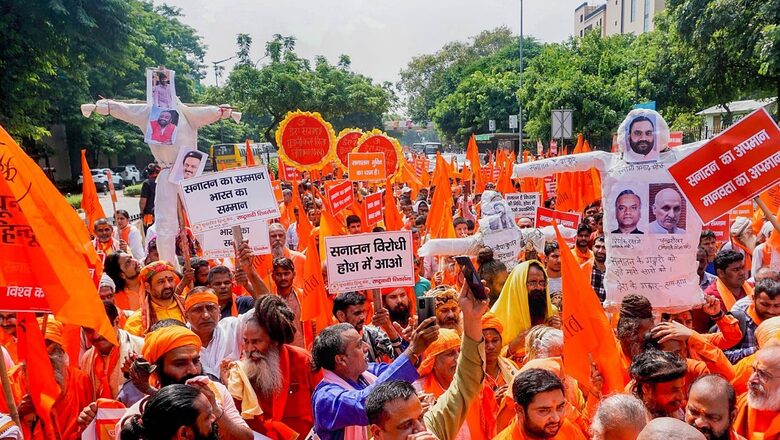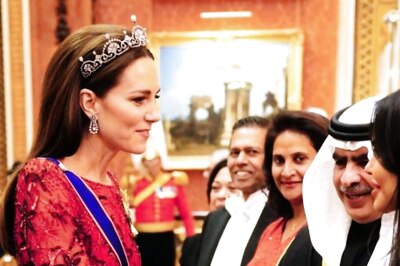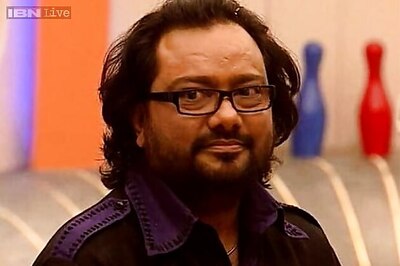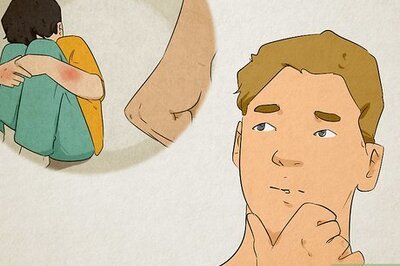
views
In an entirely insinuating move made by an utterly ignorant mind which obviously knows little about dharma and seems to be excessively obsessed with the political opportunism of the abominable kind, which he has displayed in his downright denigration of Sanatana Dharma, Udhayanidhi Stalin equates our faith with bacterial and viral diseases and exhorts his supporters to eradicate it from India like diseases are supposed to. International Working President of Vishwa Hindu Parishad, Alok Kumar, made the most befitting remark about this shockingly provocative statement that Stalin is daydreaming about doing what Mughals, Missionaries and the British could never dare during a span of more than a thousand years.
An international organisation dedicated to the promotion and preservation of Sanatana Dharma, Vishwa Hindu Parishad (VHP), was established in 1964 and since then has expanded its activities globally with a focused aim and objective to protect and promote Sanatani Hindu culture, traditions, and values. The organisation has been consistently advocating for safeguarding the interests of Sanatani Hindus worldwide and simultaneously organising various social and cultural activities to strengthen Sanatani Hindu identity. Its incumbent president, in particular, has made a notable contribution for the genuine assertion of our identity, with a potent comment on the ongoing controversy created by a self-proclaimed strategist of so-called social justice. Stalin actually revealed the mindset of a political opportunist who preferred to rush in where angels fear to tread and thus generated a heap of mess and enormous unrest all around.
Violent attacks on peaceful pilgrims in the Mewat region of Haryana followed with an absolutely insulting insinuation, rather overt condemnation of Sanatana Dharma, has to be put into perspective precisely because of the fact that there has been a deep-rooted continuing contempt for Hindus in our country, including its academic institutions. Ideologically driven activists, academicians and scholars harbour serious misgivings about the rationale behind our faith and never mince words to cast aspersions on its relevance and its very existence, since they mistakenly believe that it is a bundle of obscure practices, superstitions and regressive traditions. As a matter of fact, the insidious ecosystem created by imported secularism and pseudo-social justice that was earlier making a farcical distinction between Hinduism as inclusive and Hindutva as exclusive has indeed been instrumental in aggravating the problem of misperception.
It, in turn, triggered the prejudiced reception of Sanatana Dharma in certain influential pockets of post-colonial India. For instance, even the Indian judiciary appears to be more liberal in its reception of other faiths as is evident from the fact that in the case of Nupur Sharma, the Supreme Court of India said that she had ignited the whole country and so should apologise to the nation. Surprisingly, the same court of India is completely quiet on the unacceptable, uncouth utterance of an opinionated politician who has been enjoying political power, peddling the idea of selective, family-oriented, pseudo-social justice.
Precisely due to this pervasive perpetual prejudice against Sanatana Dharma and its practitioners in post-colonial India, the narrative of innocent victimhood of Hindus developed during the four decades of the early 20th and late 21st centuries. Such narratives did draw upon the indisputable fact that Sanatani Hindus have been at the receiving end for a long period of time because of their predominantly tolerant nature. They have suffered immeasurably on account of their peaceful, non-violent attitudes and their indifference to strengthen themselves with those measures that can protect them from the physical and verbal onslaught of the kind we have recently witnessed.
Nationalist organisations like VHP rightly emphasise the need to make masses internalise such narrative as deeply as possible. They have actually done a great deal to make us understand that we need not feel apologetic about putting all our acts together for the assertion of our Sanatani Hindu identity since it is inclusive in its approach and universal in orientation. It is actually a commonwealth of all those sacred beliefs, sects, customs and traditions which have an unwavering respect for the land called Bharat and a deep reverence for its rivers, hills, and mountains, regardless of their different ways and methods of doing prayers and displaying devotion to their respective deities.
Sanatana Dharma’s significance lies precisely in the fact that it sincerely sensitises us to acknowledge and appreciate the idea that human beings are not masters of the universe which colonial knowledge systems have made us erroneously believe, but an integral part of nature. The life and livelihood of human beings are inseparably interlinked with the environment. This awareness is central to the doctrine of Sanatana Dharma that proactively entrusts us with the responsibility of forging a harmonious relationship with nature outside to maintain ecological stability.
This profoundly insightful and universally purposeful idea has been identified, underlined and successfully foregrounded through the concerted efforts made by VHP. Where people earlier used to feel very reluctant to identify with Sanatani Hindu identity, they are now willingly coming forward to embrace and celebrate it. Due to thoughtfully planned and carefully executed attempts of nationalist organisations such as VHP, Hindutva has become a dominant, decisive and phenomenal force and its political reach, presence and influence has increased manifold.
This centrality of Hindutva, its popularity and increasing influence, and indeed its spectacular growth in India is what the anti-Sanatani mindset finds extremely difficult to digest. People with such a mindset are upset and angry about the fact that the masses are no longer misled by their rhetorical flourishes. Instead, they openly support, vote and elect those who align themselves with the philosophy of Sanatani Hindu identity. Successive setbacks at the national level of electoral politics have turned the fraudulent practitioners of pseudo-social justice hostile to the very concept of Sanatana Dharma which essentially empowers the quintessence of social justice.
Forcibly generating as it does such fictitious hostility between Sanatana Hindu identity and the idea of social justice is a premeditated political manoeuvre of the supporters of blatant caste politics whose foundation has been irreparably damaged by the proponents of nationalist politics.
The staunch believers, ardent admirers, and proud followers of Sanatani Hindu identity have reinstated the national pride by successfully organising G20 meetings and exhibiting to the whole world that India, that is Bharat, is entirely capable of making major interventions in the functioning of advanced economic enterprises, climate change and international relations of the contemporary globe.
The likes of Stalin need to be categorically told that Sanatana Dharma and social justice are not inherently opposed to each other. In fact, they are inextricably intertwined with one another. As such, it is an incredible source of spiritual strength which sustains us all. It awakens the idea of self and directs us to our roots, beliefs and timeless traditions, generating a sense of pride and tremendous joy and ecstasy in the cultural continuity of our country. We are children of the same Bharat Mata, so we should live with brotherly love and affection, and act in unison for the growth of our beloved nation. Possessed with a wide range of beliefs and practices centred around the health and happiness of the whole world, Sanatana Dharma encompasses numerous philosophical, spiritual, and cultural traditions that have evolved over thousands of years with a particular focus on the well-being of the entire universe including all living beings.
The author is Assistant Professor of English at Rajdhani College, Delhi University. Views expressed in the above piece are personal and solely that of the author. They do not necessarily reflect News18’s views.

















Comments
0 comment